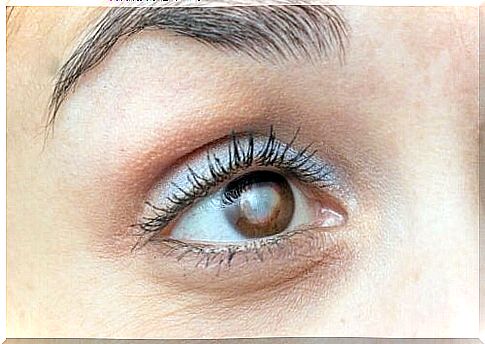How Often Is It Healthy To Eat Eggs?
Egg consumption recommendations have changed. Currently, it is proven that the daily consumption of an egg brings many health benefits.

How many times have we heard that eating more than one egg a day is bad? The frequency with which it is healthy to eat eggs has always been very varied and controversial due to the many myths that exist around this food. In this article, we clarify all of this information.
Is it healthy to eat eggs frequently?
In order to know how often it is healthy to eat eggs, you must first know the composition and properties of this food. The 2015-2020 Dietary Guidelines for Americans indicate that eggs are rich in nutrients and high-quality protein. They can thus be part of a healthy diet.
Plus, it provides few calories, around 78 kcal or so, similar to a banana. White mainly contains water (88%) and protein, of which albumin is the most important. In the yolk, 50% is water and the rest is evenly distributed between protein and fat.
The best dietary protein
The content of essential amino acids and the bioavailability of egg protein make it a high quality nutrient. In the early stages of life (via the mother’s diet), it promotes the development of the fetus. Its function is equally important in the growth phase of childhood and adolescence.
One of the best-known functions of proteins is the building and maintenance of tissues, among other things, muscles. Therefore, the egg very popular with people with great physical activity. In older people, high-quality protein like egg protein helps counter age-related loss of muscle mass. These proteins thus help maintain mobility, physical activity and quality of life.
Given its nutritional composition, the egg is a food with great satiating power. It is a particularly interesting quality for those who want to lose weight. It takes longer to feel hungry when you eat, for example, an egg for breakfast.
You will be less likely to “snack” between meals. This is due to the protein content itself, as stated in an article published in the magazine “Appetite”.
- In this case, it is advisable to take eggs prepared without fat, or with the least added fat, for example fried or cooked.

Egg fats
All the fat in the egg is in the yolk. Eggs are one of the foods of animal origin with the least amount of saturated fat and the best ratio of unsaturated and saturated fatty acids.
In addition, it is rich in oleic acid (characteristic of olive oil), which is very popular today because it has a beneficial action on the blood vessels, reducing the risk of cardiovascular and hepatic diseases.
As if that weren’t enough, this food is the best source of choline. Choline is an essential nutrient for the development and normal functioning of the body. Normally, you don’t synthesize enough choline, so you have to get it from food.
Essential vitamins and minerals
One egg provides significant amounts of a wide range of vitamins such as A, B2, biotin, B12, D and E. It is also a source of minerals such as phosphorus, selenium, iron, iodine and zinc. All of these help to cover a large part of the daily nutrient requirement.
Lutein and zeaxanthin
They are pigments from the carotenoid family found in green vegetables and egg yolks. They act as antioxidants which are deposited in the eye. They have been shown to protect and prevent cataracts.
A study published in The Journal of Nutrition found that eating six eggs a week for 12 weeks increases blood levels of zeaxanthin and improves the optical density of macular pigment.

Egg, cholesterol and cardiovascular risk
In recent decades, it has been recommended to limit the consumption of eggs due to their high cholesterol content. This recommendation was implemented as a cardiovascular prevention measure. In 1973, the American Heart Association recommended limiting egg consumption to a maximum of 3 per week.
However, the effect of dietary cholesterol on plasma cholesterol levels in healthy people is minimal and largely depends on individual factors such as genetics, body weight, or lifestyle. To date, it has been shown that there is no such direct relationship as suspected, according to a study published in the journal “Nutrients”.
Therefore, the false belief that ingesting eggs could increase cardiovascular risk due to its effect on cholesterol levels no longer has scientific support after the results of many studies.
Consuming one egg per day does not adversely affect the lipid profile of the blood and does not increase the risk of cardiovascular disease.
So how often is it healthy to eat eggs?
It has become more than clear that eggs are a very complete food that offers us many benefits. So don’t be afraid to eat an egg daily, always accompanying it with a healthy and varied diet.
Also, consider exercising frequently to improve various health-related aspects, such as the lipid profile.









